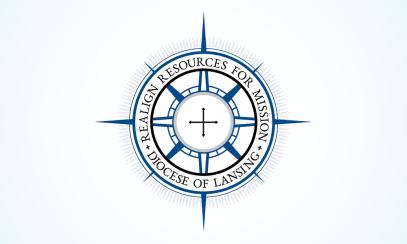Beatification of Father McGivney
Father Michael J. McGivney was beatified at the Cathedral of St. Joseph in Hartford, Conn. on October 31. The parish priest from the Archdiocese of Hartford, Conn. founded the lay fraternal Order of the Knights of Columbus in 1882 and died of pneumonia while ministering to the people of his community during the pandemic of 1890.
The beatification follows the approval by Pope Francis in May of a miracle attributed to Father McGivney’s intercession. The miracle involved the healing of an unborn baby from a life-threatening condition in 2015.
Michael McGivney was the son of Irish immigrants born in Waterbury, Conn. in 1852. When his father died while still a young man, Father McGivney and his siblings had to work to help provide for the family. He was ordained as a priest in Baltimore in 1877 for what is now the Archdiocese of Hartford. Assigned to St. Mary’s in New Haven, Conn., a parish with a pastor in ill health and tremendous debt, Father McGivney rose to the occasion. Described as a natural and engaging leader, Father McGivney’s concern for the poor and marginalized touched the hearts of parishioners as well as those of the community at a time when anti-Catholic sentiment was strong. In an effort to alleviate the suffering endured by widows and orphans, Father McGivney founded the Order of the Knights of Columbus in the basement of St. Mary’s in 1882. Dedicated to the principles of Charity, Unity and Fraternity, the order also served as a community where laymen could become “brothers” in serving others and supporting one another spiritually.
Though Father McGivney founded the order, he insisted that the organization be led by the laity, not by the clergy. The first, and largest lay-led Catholic organization in the world now has more than 2 million members. There are more than 16,000 councils around the world including the United States, the Philippines, Mexico, Canada, France, Poland, Ukraine, and Korea.
Father McGivney was the pastor of St. Thomas Parish in Thomaston, Conn. during the pandemic of 1890 that killed some 1 million people. He developed pneumonia while caring for the sick and died on Aug. 14, 1890, just 2 days after his 38th birthday.
The Diocese of Hartford opened his cause for sainthood in 1997 in recognition of his charitable devotion to the marginalized and his commitment to his faith. Pope Benedict XVI declared Father McGivney Venerable in 2008 following the investigation into his life by the Congregation for the Cause of Saints that found he had lived “a life of extraordinary and heroic virtue.
The Path to Sainthood at a glance…
The current procedure for causes of beatification and canonization can be found in the apostolic constitution Divinus Perfectionis Magister, promulgated by Pope John Paul II in 1983. The various stages leading to canonization are as follows:
Servant of God – The process can begin after at least five years have passed since the death of the candidate. It involves a diocesan-level investigation into the candidate’s exercise of Christian virtues considered heroic. At this point, the candidate can be called Servant of God.
Venerable – The investigation is passed on to the Congregation for the Causes of Saints in Rome. After a summary report obtains the necessary votes of nine reviewing theologians, the cause is passed on for examination by cardinals and bishops of the congregation. A recommendation then is made to the pope that he should issue a proclamation of the candidate’s heroic virtue. From the point of the pope’s proclamation, the candidate is referred to by the title of Venerable.
Blessed (Martyrs) – In the case of a martyr, the prefect of the Congregation presents the results of the investigation to the Holy Father, who gives his approval and authorizes the Congregation to draft the relative decree of beatification. The public reading and promulgation of the decree of beatification grants the candidate the title of Blessed.
Blessed (Confessors) – If the candidate was not a martyr but rather a confessor who died peacefully after a life of heroic virtue, a miracle attributable to the intercession of the candidate after his or her death is necessary. If the miracle is verified, a second decree is promulgated, with the decree on heroic virtue, which grants the candidate the title of Blessed.
Saint – In order for the Blessed to be canonized and acquire the title of saint, another miracle is required and must have occurred after his or her beatification.



